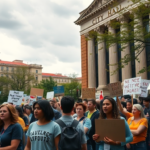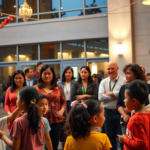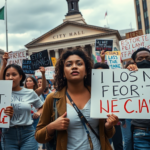Diane Ravitch: A Transformative Voice for Public Schools and Educational Equity
Diane Ravitch, an esteemed historian of education, has become a powerful advocate for public schools and educational equity, following a dramatic policy shift in her renowned career. Once an ardent supporter of charter schools, standardized testing, and vouchers, Ravitch underwent a profound transformation upon recognizing the adverse effects of these policies on American education.
A Reckoning and a Revelation
Ravitch’s newest book, “An Education: How I Changed My Mind About Schools and Almost Everything Else,” weaves personal memoir with incisive political analysis, charting her journey towards championing reforms aimed at equitable education for all. The epiphany which set Ravitch on this path was her exposure to the systematic issues plaguing charter schools, including corruption and exclusionary practices that disadvantaged students with disabilities and from socio-economic hardships.
This realization was compounded by observing the impact of universal voucher programs, such as those introduced during the Trump administration. Ravitch criticizes these initiatives for diverting essential funding from public schools while predominantly serving affluent families—a practice she sharply terms “welfare for the rich.”
Championing Community Schools and Public Funding
In opposition to privatization, Ravitch endorses the community schools movement, which integrates local services supporting educational institutions. However, she acknowledges the political narrative often skews towards privatization, influenced by key players including free-market and evangelical billionaires, as well as high-profile figures like Michael Bloomberg and Bill Gates.
Ravitch argues these entities persist using the corporate model for education, which treats schools as businesses. According to Ravitch, this approach ignores the intrinsic value of education as a public good and undermines community welfare.
Her organization, the Network for Public Education, embodies Ravitch’s commitment by actively resisting the expansion of charter schools and vouchers. Her support for unions and advocacy for increased teacher autonomy and adequate funding reflect her dedication to addressing issues such as teacher dissatisfaction and legislative overreach.
Local Impact and Future Implications
For local communities across the United States, Ravitch’s insights and advocacy illuminate a path towards reimagining educational policies. In areas similar to Woke News’ readership, where public schools function as critical community hubs, these discussions are particularly relevant. They invite residents to scrutinize how educational funding and policy decisions directly impact local schools.
Sarah Martinez, a teacher at a public school in the Phoenix area, underscores the importance of these discussions. “The push for privatization has made it difficult for our schools to receive the resources we need. Ravitch’s work is not just a critique, but a rallying cry for communities like ours to reclaim investment in public education,” she states.
Locally, connections are drawn with past initiatives aimed at strengthening public education, including community-driven projects engaging students and parents. Looking forward, Ravitch’s advocacy suggests promising avenues for rekindling these local movements and fostering collaborative efforts between schools and local organizations.
A Balanced Perspective and Community Resources
While Ravitch’s perspective strongly critiques privatization, it’s essential for ongoing dialogue to include varied viewpoints, ensuring well-rounded policy discussions. Some proponents of charter schools argue for their role in driving innovation and providing alternative approaches to education. However, genuine reform hinges on balancing these views with consistent, equitable public school funding.
For community members eager to delve deeper into these issues, engaging with resources such as the Network for Public Education can provide meaningful opportunities for involvement. Local events and informational sessions promoted by educational foundations may also offer platforms for discourse, allowing residents to voice their perspectives and collaborate on actionable solutions.
Diane Ravitch’s transformative journey underscores the essence of adaptive leadership in the face of complex educational challenges. By harnessing a blend of advocacy, community interest, and forward-thinking education policies, she inspires an ongoing commitment to educational equity.
Engaging the Community
As Ravitch’s journey continues, so does the opportunity for local communities to engage actively in shaping the future of education. Residents are encouraged to communicate with education officials, participate in community forums, and support policies that emphasize public investment.
To stay informed, community members can explore local libraries and educational institutions for resources on public education advocacy. Keeping in touch with developments via Woke News and similar sources ensures that the dialogue around education remains vibrant and inclusive.
Ultimately, Ravitch’s story resonates not just as an individual’s transformation, but as a catalyst for collective change—inviting communities to envision and work towards an educational system rooted in equity and inclusivity for all.







